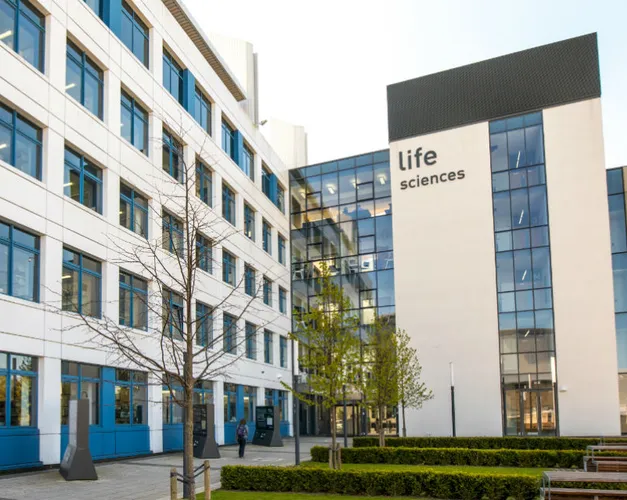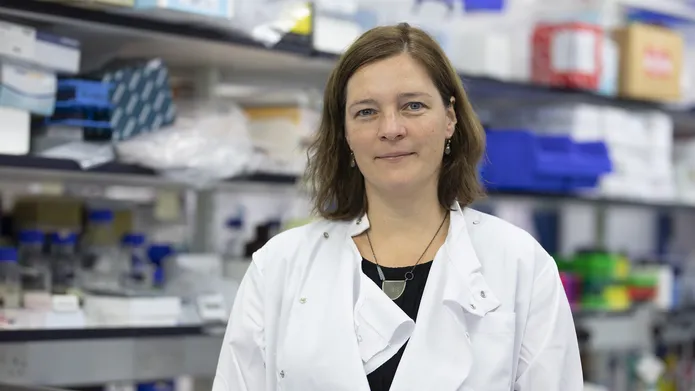Press release
Research comes full circle as Parkinson’s trial begins in Dundee
A study that could lead to the development of new treatments for people living with Parkinson’s disease has launched at the University of Dundee.
Published on 4 May 2023


Breakthrough research developed by experts at the University’s Medical Research Council Protein Phosphorylation and Ubiquitylation Unit (MRC-PPU) is now being harnessed through experimental drugs being trialled in the city.
The study is utilising LRRK2 inhibitors developed by Denali Therapeutics and Biogen. Mutations in the LRRK2 protein kinase are the most frequent cause of inherited Parkinson's disease and there is hope throughout the scientific community that a successfully developed inhibitor could slow progression of the disease in those living with the condition.
Understanding of the LRRK2 kinase was painstakingly researched and developed by the world-leading Dundee team of Parkinson’s researchers around Professor Dario Alessi, director of the MRC-PPU, work that has now come full circle with the start of this trial.
“This is a significant step forward in the quest to develop new Parkinson’s treatments,” said Dr Esther Sammler, local Principal Investigator for the trial and Clinical Group Leader in the MRC-PPU.
“Welcoming the first patient in the UK to be involved in the trial of this drug is testament to the years of hard work undertaken here in Dundee to unlock the secrets of this cruel disease.
“Our work has received huge support from external partners, including donations from the public, for which we are extremely grateful. While there remains a long road ahead of us, trials such as this are proof that our research is integral to transforming outcomes for Parkinson’s patients in the future.”
More than 10 million people worldwide are believed to be living with Parkinson’s disease, however, no new drug to help those living with the condition has emerged in more than 50 years.
The University of Dundee is a globally-recognised centre for research into Parkinson’s disease, its causes and the search for potential therapies.
Having helped to discover that LRRK2 can regulate Rab GTPases proteins, Professor Alessi said that being involved in this trial was a momentous step in the battle to find new treatments for Parkinson’s.
“Unlocking the workings of LRRK2 was the toughest challenge of my career,” he said.
“It is hugely gratifying to know that the research carried out here in Dundee has ultimately led to trials such as this. However, while this is a significant milestone, we have to acknowledge that there is still a lot of work ahead to establish whether LRRK2 therapeutics will benefit patients and stall the progression of Parkinson’s. There are also huge challenges and timescales involved in researching anything to do with Parkinson’s disease.
“The need to develop new treatments for Parkinson’s remains urgent, but everyone here at Dundee is determined to continue our research in the quest to help those living with this condition. Whatever the outcome of this trial, we will not stop working on finding better ways to treat Parkinson’s until the job is done.”
Anyone wishing to learn more about or donate to the Dundee Parkinson’s Research Campaign can do so online.